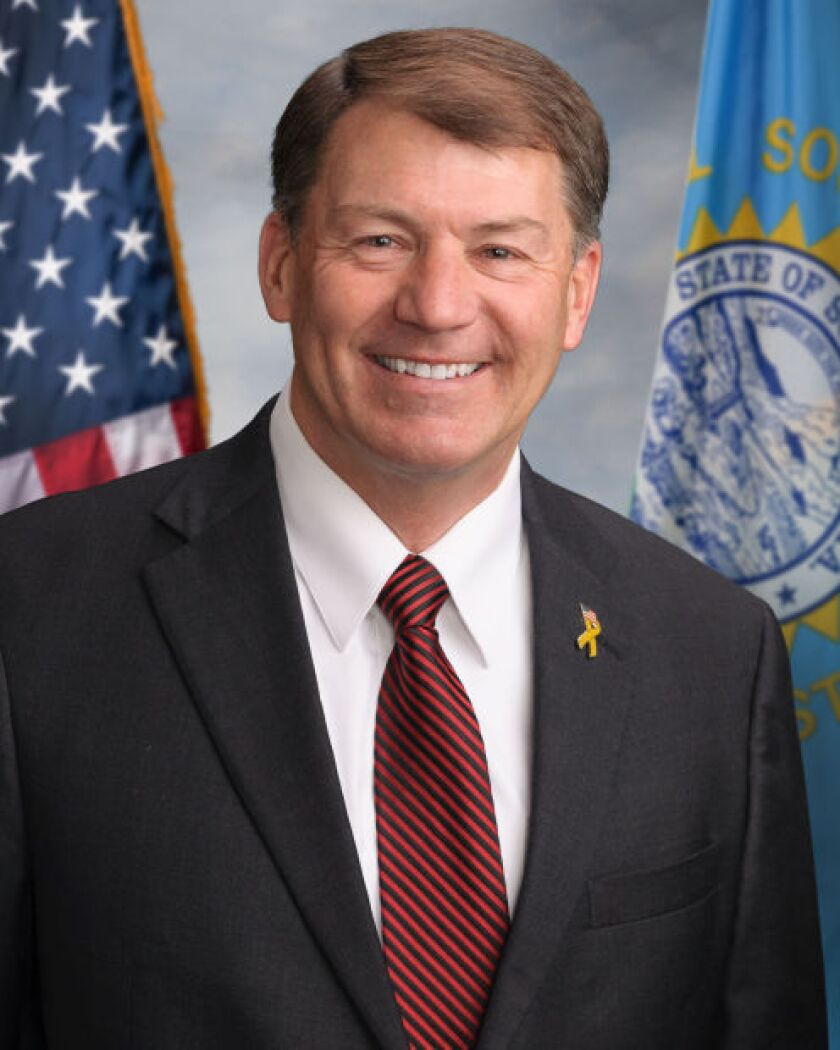PIERRE, S.D. — Two-thirds of South Dakota's congressional delegation are up for reelection with both Republican incumbents facing a challenger in June's primary election.
Two Republicans are vying for South Dakota’s lone vote in the U.S. House of Representatives in the upcoming June primary. Incumbent U.S. Rep. Dusty Johnson of Mitchell faces former state Rep. Liz May of Kyle on June 2. No Democrats are on the ballot, which means the outcome of the primary will determine who will represent the state in Washington.
South Dakota’s economy has always been rooted in agriculture, but the state’s backbone industry is at more risk than ever.
Johnson has been a supporter of Country of Origin labeling for meat products throughout his two years as a congressman. He’s also sponsored legislation that provides more flexibility to meat processing workers, allowing more overtime to ensure beef production keeps up with cattle ready for slaughter.
Johnson said he’s confident President Trump will address disruptions in the country’s meat supply chain.
ADVERTISEMENT
For years, cattle producers in the state have repeatedly asked for federal legislation that would prevent meat packers from controlling the prices of cattle for slaughter.
Johnson added he’s been vocal about the issues facing cattle country during his time in Congress to ensure South Dakotan beef producers have their voices heard.
May said extensive damage to the state’s livestock industry has already happened as a result of inaction from Congress.
An independent cattle producer and grocery store owner, May said she has the personal experience that Congress needs to know exactly what legislation will help producers and consumers.
“If we don’t do something this fall, the number one industry in the state of South Dakota will be gone. We had 20 bankruptcies last fall at our local bank from young producers who lost everything,” May said.
May said she’s allowed four choices of major meat suppliers to stock her grocery store’s shelves.
“We’ve got to get voices in Washington who represent who we are. I have nothing against Dusty as a person but it’s hard to bring a message if you don’t have those life experiences,” May said.
“You don’t know the right questions to ask in the committee. They just don't know the questions to ask.”
ADVERTISEMENT
The primary will also have two Republican candidates vying for a seat in the U.S. Senate.
Incumbent U.S. Sen. Mike Rounds of Fort Pierre is running against state Rep. Scyller Borglum of Rapid City.
Rounds has also been focused on the cattle market problems and recently introduced legislation requiring negotiations to reinstate mandatory country of origin labeling.
“Specifically, it calls for the U.S. Trade Representative to enter into negotiations that would allow for MCOOL to be reinstated without the threat of tariffs," he said. "Our bill is the most meaningful legislation that I’ve seen in five years -- we have bipartisan, cross-country support for it. However, we need President Trump to work to remove tariff barriers.”
Borglum said there’s already legislation introduced that needs to be acted on, known as the PRIME Act. The bill would loosen regulations to allow meat such as beef, pork or lamb from custom kill plants that aren’t federally or state inspected to be sold to consumers, restaurants, hotels, boarding houses and grocery stores.
She also took aim at the EB-5 program, which has given wealthy Chinese investors ownership over U.S. businesses if they invest a minimum of $900,000 in a business that will create jobs and boost the economy.
Borglum said that the program is allowing communist China to control U.S. businesses and should be terminated.
Borglum said her decision to run against Rounds is to introduce and act on bills rather and make a change. She likened herself to May in their desire to not make a career out of politics.
ADVERTISEMENT
“We’re two women who can actually hold jobs outside of the political arena,” Borglum said. “Neither of us has any interest in being lifelong politicians.”
Borglum said that if South Dakotans want to reelect the same congressional representatives, they can expect the same results.
“They can go back to business as usual and it’s our cattle producers and hog farmers who will pay that bill and ultimately get turned over to China,” Borglum said.











